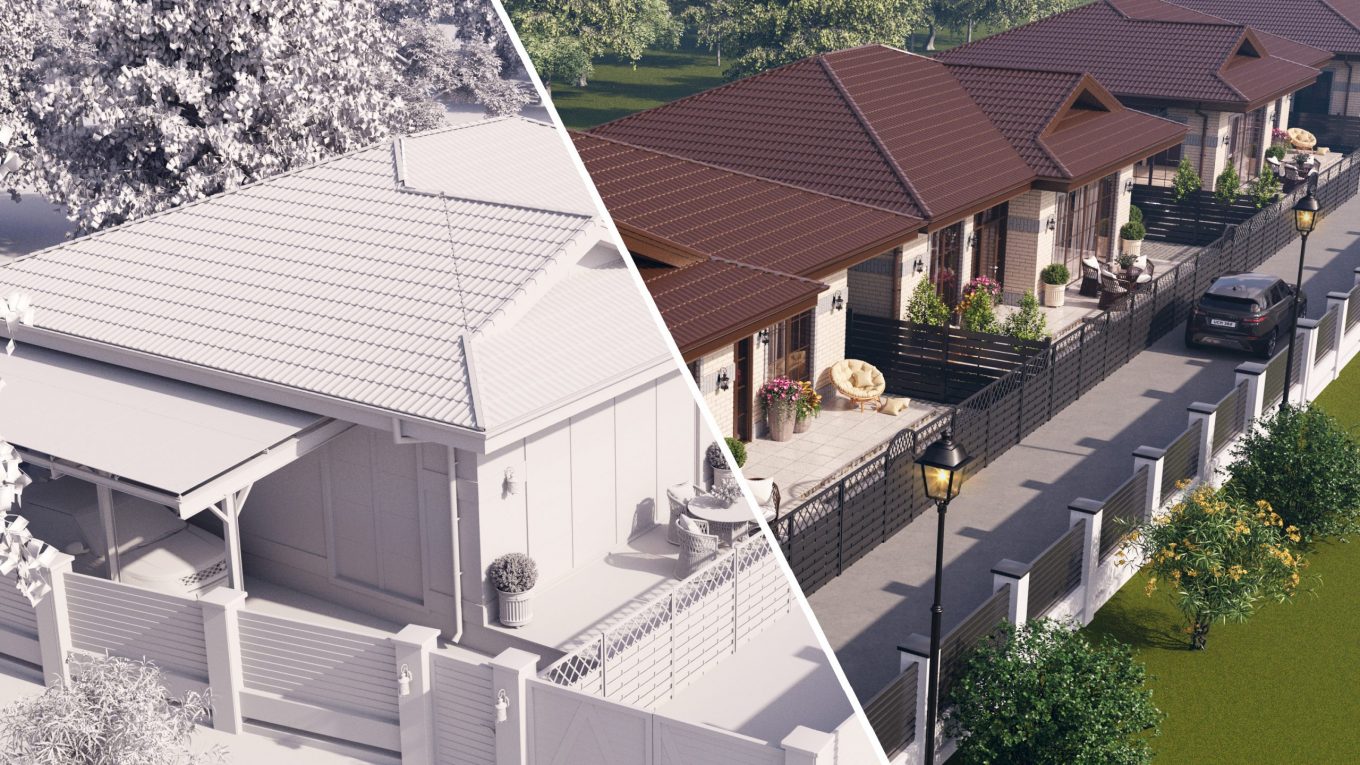
Successful architectural visualization involves creating high-quality visual representations of buildings or structures that effectively communicate the design concept and engage the viewer. Here are some basic principles that can help achieve this goal:
- Точность. The visualization should accurately represent the design concept, including its proportions, materials, colors, and lighting. This requires careful attention to detail and a thorough understanding of the design.
- Композиция. The composition of the visualization should be carefully considered to ensure that it effectively communicates the design concept and draws the viewer's eye to the key features of the building or structure. This involves making strategic choices about camera angles, lighting, and framing.
- Освещение. Lighting is a crucial element of architectural visualization, as it can greatly impact the mood and feel of the space. A skilled visualization artist will use lighting to highlight key features of the design and create a sense of depth and dimensionality.
- Текстуры и материалы. Использование высококачественных текстур и материалов может значительно повысить реалистичность визуализации. Это помогает зрителю понять материалы и отделку, которые будут использованы в окончательной конструкции.
- Контекст. Context is important in architectural visualization, as it can help the viewer to understand the building's relationship to its surroundings and its place within the larger built environment. This might involve including elements such as landscaping, neighboring buildings, and street views.
- Коммуникация. Finally, successful architectural visualization requires effective communication between the designer and the visualization artist. The visualization artist should be able to understand the designer's intent and effectively translate it into a visual representation that accurately represents the design concept.
Все эти принципы использую в своих работах.
